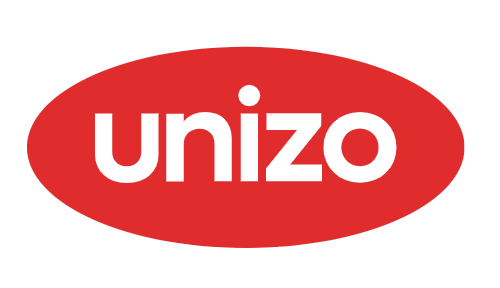An ordinary limited partnership whose partners want it to have legal personality will take the form of an SNC or SComm.
Why would you want legal personality?
- So that the partnership has its own assets (separate from those of the partners). In particular, this means that legal action against a partner will not be able to touch what belongs to the partnership.
- So that the partnership has legal capacity, i.e. its own rights and obligations. The partnership can therefore take legal action on its behalf. And if a third party wants to make a claim against a partner, they cannot do so until they have requested the conviction of the partnership.
- So that it has its own tax regime: the corporate income tax.
- The company will also have its own name (this is mandatory).
However, SNCs and SComms are said to have an "incomplete" legal personality, as the separation between the company's assets and the partners' assets is not quite complete (the partners are jointly and severally liable for their partnership's debts).
Specific features of the general partnership (SNC)
A general partnership (SNC) is a "partnership", an association of several (min. 2) people, whose corporate purpose is to carry out a civil or commercial activity. So you cannot create it alone.
This type of company is beneficial when two partners are involved in a project (whereas in the SComm, only one person is involved, the general partner).
Its existence is linked to the fate of the partners. All partners have unlimited joint and several liability for the company's commitments.
Specific features of the limited partnership (SComm)
This is a form of company that is often well suited to individuals who are either primarily or secondarily self-employed, want to incorporate for tax reasons but do not particularly need limited liability.
Two types of partners
SComms have two types of partners: active general partners and passive limited partners.
- Roles of the general partners: they are responsible for the management of the company. These partners are indefinitely and jointly and severally liable for the company's commitments (unlimited liability).
- Role of limited partners: these partners only make contributions (of money or in kind) and their liability is limited to their contribution. They are not involved in the management of the company and do not appear to third parties as managing the company. If they nevertheless carry out a management act, they will also incur unlimited (personal) liability in the same way as a general partner (except in certain cases for an act of purely internal management or advice to the general partner).
E.g. If the limited partner buys a computer for the SComm and fails to pay the bill, the seller can take them to court to demand payment.
The limited partner is often a passive partner of the company and is not subject to the social status of self-employed workers. The limited liability offered to the limited partner can be an attractive element in convincing someone to join an SComm.
On the other hand, a limited partner who works in the company and receives remuneration, whether direct remuneration via a cash payment or indirect remuneration via benefits in kind, must be self-employed and pay social security contributions.
Good to know
It is beneficial to be able to benefit from corporate income tax, but do not forget that although the money you take out of the company to pay yourself a salary is included as an expense that reduces the company's taxable base, it will be taxed as personal income tax (PIT). This is why it is a good idea to pay yourself a modest salary, at least at the start of your business, and to seek advice from a tax specialist to supplement this salary in other ways if possible.
Rules common to SNCs et SComms
Terminology
Whereas SRLs and SAs use the terms "shares", "directors" and "shareholders", SNCs and SComms use the terms "shares", "managers" and "partners". It is important to use the right terms for the right company.
Constitution
A minimum of two people (individuals or legal entities), called partners, are required, and at least one manager must be appointed.
As far as formalities are concerned, the company's articles of incorporation must be drawn up in writing. The articles of association can be drafted by the partners themselves. This is known as a private deed of incorporation. A notarised deed is therefore not mandatory, except in the case of a contribution of property. You can easily find inspiration for drafting the articles of association by consulting those of other (recent) companies on the Annexes to the Belgian Official Gazette website, by selecting the company form SNC or SComm in the 'legal form' section.
If you would still like help with drafting or proofreading the deed, there are a number of ways you can go about it: a business start-up support structure, an accountant, a notary or a lawyer. In the deed of incorporation, you will need to specify various details concerning the partners, name, legal form, object, registered office, contributions, liquidation, etc.
Only an extract from the deed of incorporation needs to be filed with the clerk of the court, and it must contain certain mandatory information (Art. 2:8, §2 CAC). You can do this yourself on the Just On web site (it was previously possible to do it via e-greffe) or via a business counter. This publication costs EUR 270.92 incl. VAT (2023 prices). Publication in the Annexes to the Belgian Official Gazette is also required.
To modify the articles of association, everything can also be done under private contract and therefore without (notary) fees. Amendments must be filed with the clerk of the court for inclusion in the company file. The clerk of the court then publishes an extract of the deed of incorporation in the Annexes to the Belgian Official Gazette.
Partners will have self-employed status and their own company number (unless the purpose of the ordinary limited partnership is to manage private family assets). The VAT number belongs to the company, not the partners.
Contributions
The law does not set a minimum capital requirement prior to set-up, but it is recommended that you have the necessary funds for your project. In the same vein, there is no requirement to submit a financial plan for incorporation, although it is always recommended.
Three types of contribution are possible: contribution in funds (cash), contribution in kind (goods), or contribution in industry (labour).
- A bank certificate is not required for cash contributions.
- For contributions in kind or in industry, you will not need an auditor's report to determine the value of the contribution (whereas this is required for SRLs, SAs or cooperative societies), which makes it considerably easier to put these types of contributions (known as "quasi-contributions") into practice.
Each person's contribution will have an impact on the distribution of profits during the life of the company, and on the distribution of assets if the company folds.
Liability and decision-making
As these companies have legal personality, they are legally committed. Managing directors can commit their company.
Partners have unlimited liability, so their private assets are not protected against seizure (unlike an SRL, where you cannot lose more than you contributed). This liability only ends with the publication of the resignation of the partner in an SNC or the managing partner in an SComm.
In addition, partners are jointly and severally liable. One of the consequences of this is that, with regard to third parties, each partner can commit all the partners. Similarly, creditors can contact the partner of their choice (often the most solvent) to recover the full amount of their claim. For this, creditors do not even have to prove fault on the part of the target partner.
Unanimity is required for internal decisions unless expressly waived. By way of exception, the basic agreement can therefore stipulate that, to change a particular point, the decision must be taken by a simple majority rather than unanimously.
To protect their private assets, partners may, if they wish, have a notary draw up a declaration of unseizability to protect their principal residence and protect themselves from the company's debts (excluding tax debts or those resulting from an offence). The cost of this declaration is between 1,500 and 2,000 euros.
Transfer of shares
SCN and SComm shares are non-transferable (i.e. cannot be sold or given away) unless the partners unanimously waive this rule.
The articles of association may also provide for an exception to the unanimity rule.
Accounting
SNCs and SComms can opt (optionally) for simplified accounting if their annual turnover is below 500,000 EUR (excluding VAT). Above this amount, double-entry accounting is automatically required.
In practice, this means that:
- the accounts do not have to be published;
- two financial journals must be completed: the cash book (for cash transactions) and the account book (for bank transactions);
- the purchase boo must list incoming invoices, and the sales book must list outgoing invoices. Make sure you keep all your invoices;
- at least once a year, complete the inventory book, which consists of a description and valuation of stock.
Annual accounts
There is no obligation to publish annual accounts by filing them with the Central Balance Sheet Office of the Belgian National Bank, which can also be an advantage if you prefer to keep your financial situation confidential.
There is one exception to this principle, and therefore the obligation to keep accounts according to the usual rules of double-entry bookkeeping and draw up annual accounts when the company's turnover exceeds €500,000 excluding VAT.
Publication of annual accounts
Smaller SNCs and SComms, and SNCs and SComms where all partners with unlimited liability are natural persons, do not have to publish their annual accounts by deposit with the National Bank of Belgium.
Most SNCs and SComms will be affected. These are companies which, at the balance sheet date of the last completed financial year, do not exceed one of the following criteria:
- average annual number of employees: 50
- annual turnover of less than €9,000,000 (excl. VAT)
- balance sheet total: €4,500,000
Distribution of profits
Lastly, SNCs and SComms are exempt from the profit-distribution procedures and restrictions that apply to SAs, SRLs and cooperative companies. They can freely distribute dividends without first having to pass the double distribution test, i.e. the net assets test (which checks that net assets are not negative after the distribution) and the liquidity test (which means that the company must be able to pay its debts over the following 12 months).
Taxation on profit distribution
Any profits from the company can be freely shared between the partners.
In most cases, the company has its own account number. Each partner is taxed separately on their share of the company's income. In tax terms, it is as if the company did not exist
Example
Three doctors get together and set up an ordinary limited partnership. When the company receives EUR 300 in its account, the three doctors will each receive EUR 100, and they are each taxed separately. Either personal income tax (PIT) or corporate tax (ISOC) applies (if a member of the company is incorporated).
Fin de la société
There is the turbo liquidation option, which enables the SNC or SComm to be closed in a single operation. You must enclose a statement of assets and liabilities (less than three months old), an auditor's or chartered accountant's report and the report of the Extraordinary General Meeting. The deed must be filed with the clerk of the court and published in the Belgian Official Gazette. No notary or liquidator is required.
If there are still debts owed to partners or third parties, turbo liquidation will not be possible and two acts will be required to bring the company to an end: dissolution followed by liquidation in two operations. This will require a liquidator, who may be one of the partners.
Special cases and points of attention:
- The partnership also comes to an end if one of the partners dies, becomes legally incapable, goes bankrupt or becomes insolvent. Note that it is possible to derogate from this rule in writing, for example by stipulating in the basic agreement that in the event of the death of one of the partners, the shares of X will go to a certain person.
- Please note that debts cannot be written off in the event of an SNC or SComm bankruptcy. The manager is not considered a company and cannot go bankrupt at the same time as their company. The manager is therefore liable for the debts.
- If a partner leaves the company and only one remains, the company will be dissolved, as a de facto partnership can only exist with a minimum of two partners. The remaining partner cannot remain alone. The company number of the ordinary limited partnership will be cancelled. If one of the partners remains active, then VAT status must be activated for this partner (either directly with a VAT office or via a business counter). However, the basic agreement may stipulate that either partner may withdraw under certain conditions without the company being terminated (specific professional or personal reasons, etc.).
- In the case of a temporary company, the company will terminate on expiry of the term chosen in the basic contract. For example, if an architect teams up with a contractor for a project, the partnership will come to an end when the project is completed.
- UBO register: the Anti-Money Laundering Law of 31 March 2020 made it mandatory to register all "beneficial owners" of a company - and therefore also of an ordinary limited partnership - in the UBO (Ultimate Beneficial Owners) register. This is an obligation to declare natural persons who control a "company" in the broadest sense of the term. In principle, this obligation applies to any person who holds more than 25% of the shares or voting rights in the ordinary limited partnership, or who otherwise exercises control over the ordinary limited partnership.
The fact that companies must be registered in the CBE and register their beneficial owners in the UBO register means that their existence is recorded, which means a loss of discretion.
You will find explanations of the UBO register on the FPS Finance website. You can also access the UBO register.
Transition to SRL
If you have an SNC or SComm, it may make sense at some point to convert to an SRL for the following reasons:
- to benefit from limited liability, since partners in SNCs and general partners in SComms are personally and unlimitedly liable for the company's debts (whereas in SRLs, shareholders have limited liability); This may be due, for example, to the desire to make major commitments to third parties or to raise capital (opening up capital to third parties);
- to change to a single partner, since a minimum of two partners is required for SNCs and SComms, whereas SRLs require just one;
- for image reasons (in relation to third parties who would place more trust in SRLs).
This transformation requires a notary to adapt the articles of association. You should also have a statement of assets and liabilities from less than three months ago, and ask your accountant for a report.
There will be no transfer of assets, as the legal entity will continue to exist even if its form has changed. Contracts therefore continue to bind the company, which continues to exist with the same company and VAT numbers. The transformation must be published in the Belgian Official Gazette.
From a tax point of view, there is no specific advantage in converting to an SRL, since SNCs, SComms and SRLs are subject to the same rules concerning taxes, VAT and registration fees.
Comparison table to distinguish the technical differences between SNC-SComm and SRL:
| SNCs and SComms | SRLs | |
| Number of partners/managers | Minimum 2 | Minimum 1 |
| Limited liability of partners/managers | No, except for limited partners in SComm | Yes |
| Drafting and amending articles of association before a notary | No | Yes |
| Liability of company founders | No | Yes |
| Mandatory financial plan | No but recommended | Yes |
| Do contributions in kind require an auditor? | No | Yes |
| Profit distribution | Freely defined in the articles of association | Dividends per share, unless otherwise specified in the articles of association |
|
- Constraints on profit distribution - Alarm procedure |
No | Liquidity and solvency testing |
| Accounting | Single accounting (double accounting only if turnover exceeds 500k) | Double-entry bookkeeping mandatory |
| Publication of annual accounts | Not compulsory (except for a large company where one partner is a legal entity) | Mandatory |
From SRL to SNC or SComm
Conversely, some company managers or directors want to continue their activities, and it is possible (but not obligatory) to transform an SRL or SA into a more discreet company such as an SNC or SComm (for investment, succession or other purposes).
This can also offset the income ceiling imposed on pensioners. The income limit (e.g. EUR 7,500 per year for a self-employed person under 65 who continues to work) only increases if the person is over 65, or under 65 but has worked for 45 years.
All partners or shareholders of the SA or SRL must consent to the conversion to an SNC or SComm (this is due to the personal liability in SNCs and SComms), and certain formalities must be respected, on pain of nullity. The precise rules are set out in Articles 14.3 to 14.13 of the CAC.
A statement of the company's assets and liabilities must be drawn up and reviewed by an expert. The change must be made by a notary by means of an authentic deed filed with the clerk of the court, and an extract published in the Annexes to the Belgian Official Gazette.
Conclusion
The great flexibility allowed by the CAC in the articles of association of an SRL means that the reasons for preferring SNCs and SComms are no longer decisive, but there are still valuable benefits to these forms of company (benefits unchanged since the reform of company law):
SNCs and SComms:
- have far fewer mandatory rules than other forms of company (e.g. dividend distribution, simpler contribution in kind);
- have lower costs. At incorporation (no notary, no financial plan, no auditor in the event of contributions in kind), and along the way (no annual accounts, no notary to amend the articles of association);
- are more discreet, as no annual accounts are published. Moreover, the identity of the limited partners in the SComm can remain virtually anonymous, as the company's incorporation deed does not have to be published either;
- are subject to corporate income tax, which is particularly attractive for complementary activities involving individuals that are growing in scale;
- are beneficial for self-employed people or employees who want to remain active after their career without fear of losing their pension;
- are of interest for estate planning if you want to give your company to your children at some point, to avoid paying inheritance and gift taxes.
The main reason not to become an SNC or SComm is the unlimited liability of the partners, but you need to analyse on a case-by-case basis whether this liability is appropriate or risky depending on your situation.
Who can help me ?





